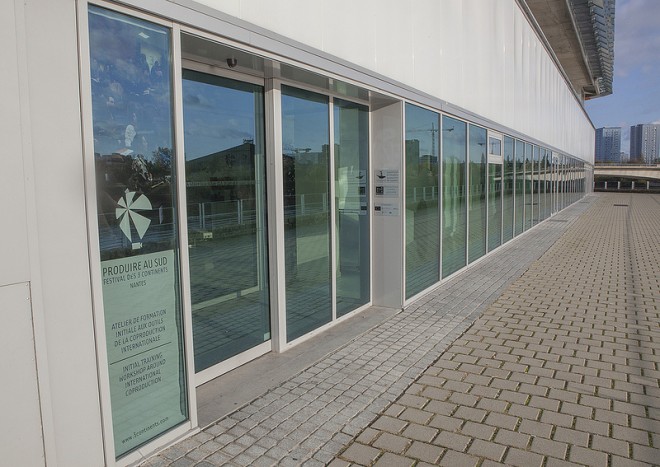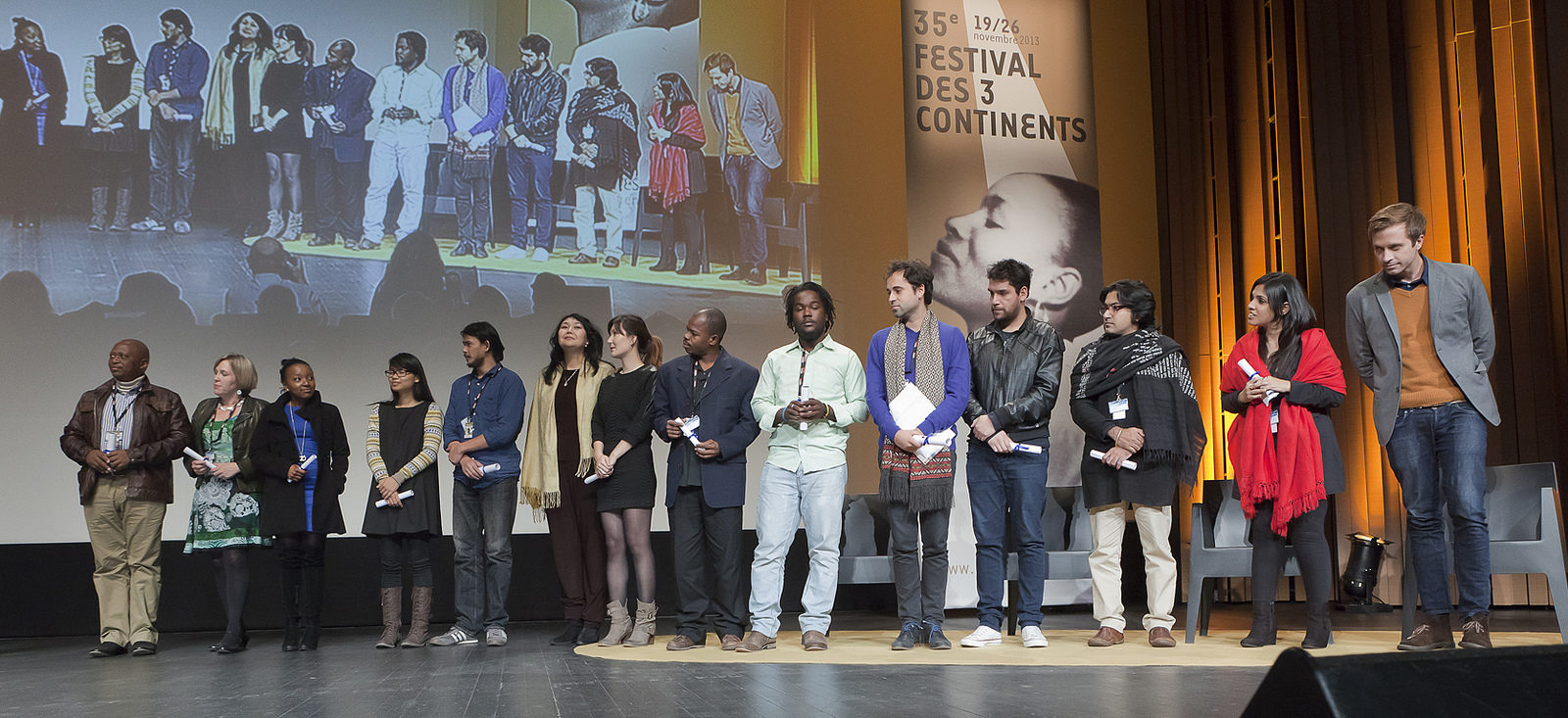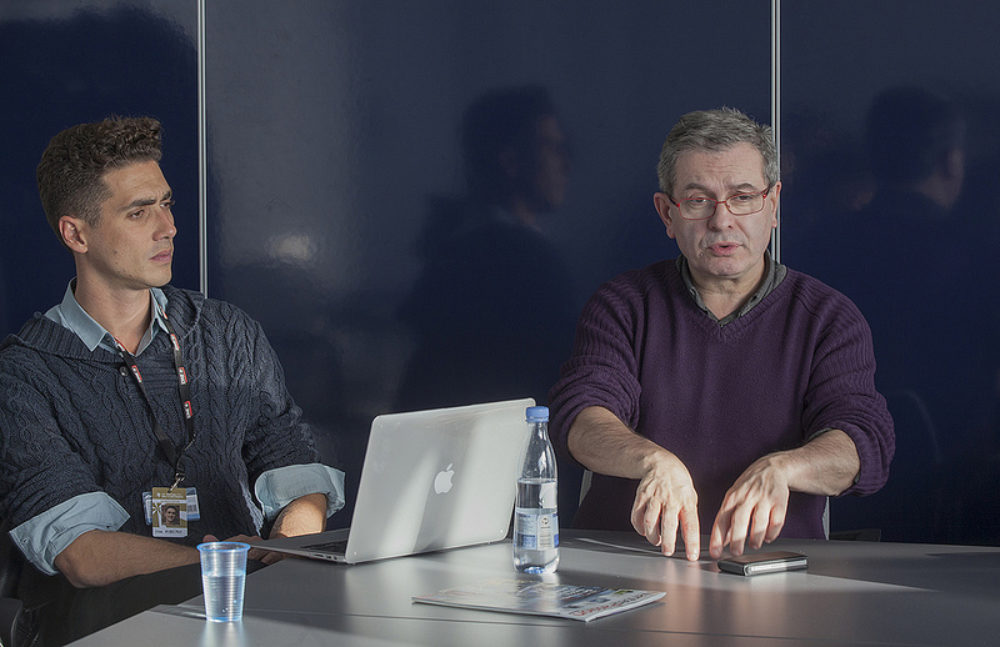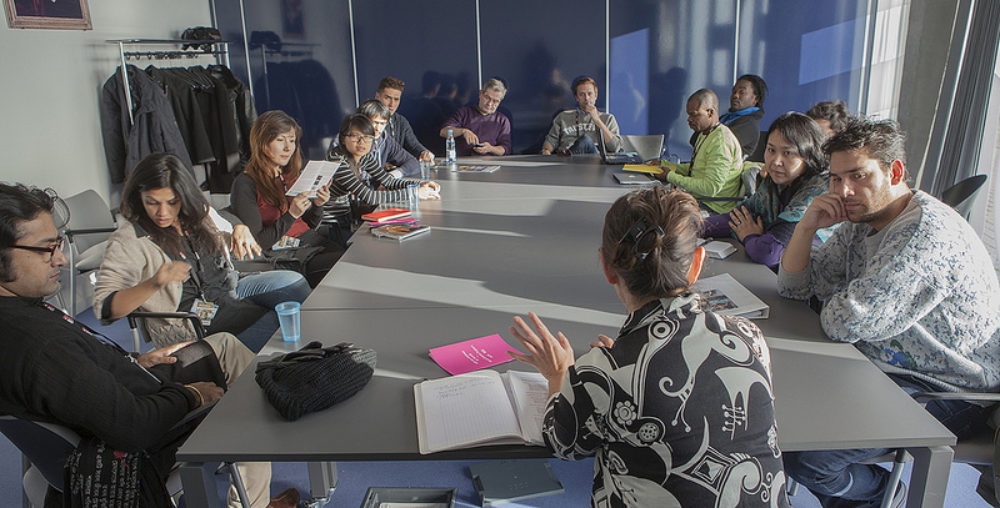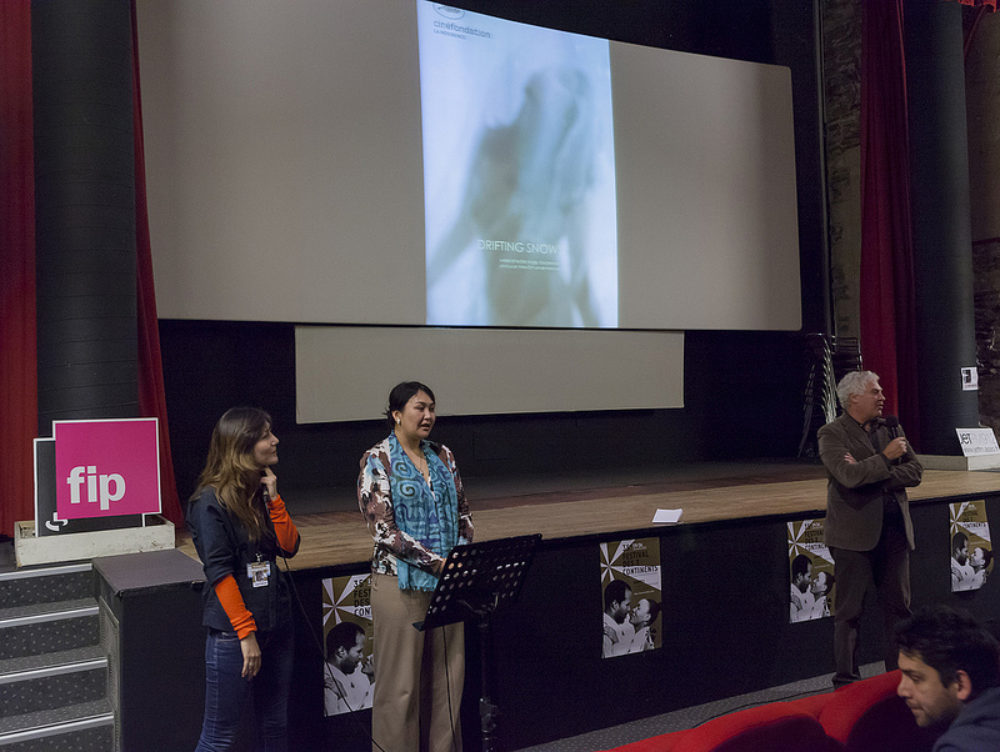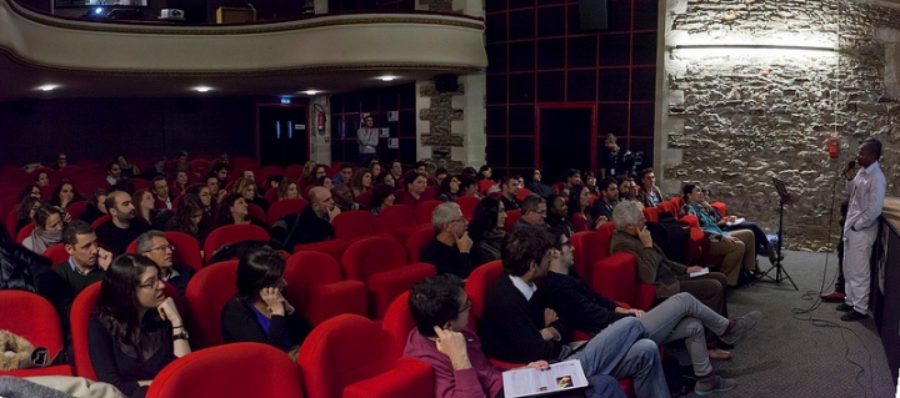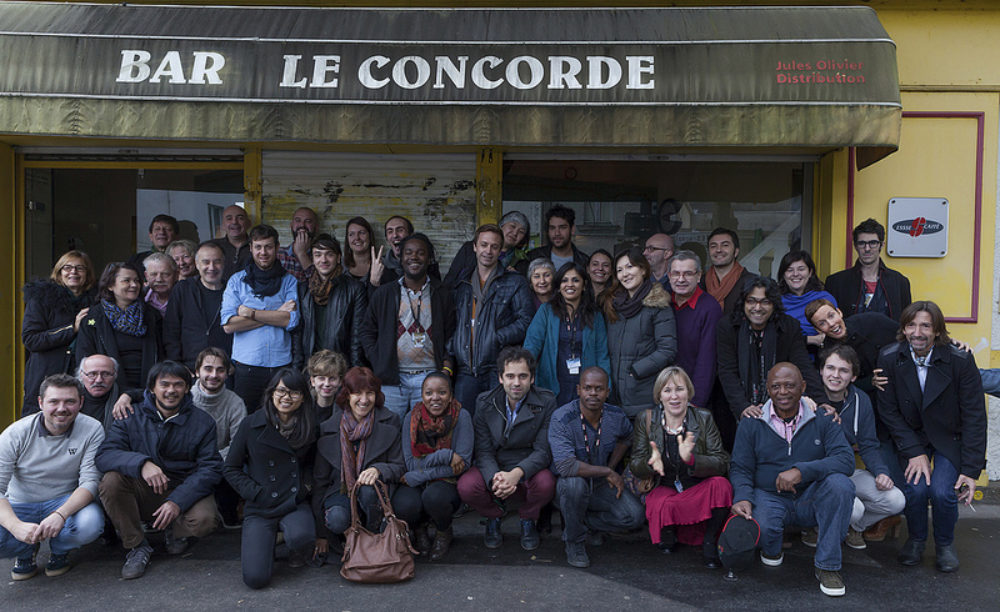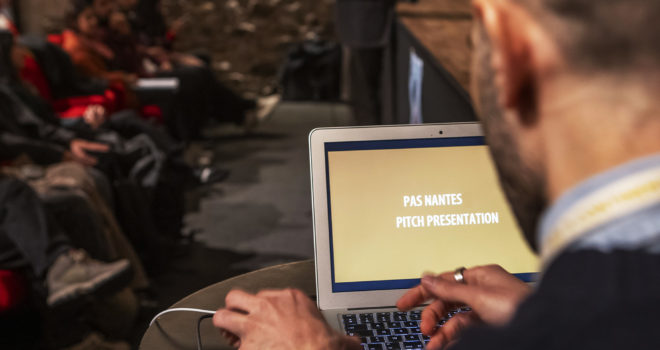Editorial
Since 2000, the “Produire au Sud” workshop has been helping to discover new films from the 3 Continents that are in their script development phase, and fostering young talent, directors and producers. Thanks to its intensive coaching program, supported by international coproduction tools, the PAS workshop has become an ideal companion for the 3 Continents Festival to accompany a cinema that is constantly in the making.
Workingall year round with young professionals from the 3 Continents (4 international workshops due in 2014 in Brazil, Israel, Venezuela and Thailand), PAS has a privileged view of the new international dynamics at work in coproduction. In recent years, the thrust of international coproduction has been shifting. No longer confined to North-South initiatives, it has been steadily moving towards other forms of cooperation in a South-South direction. Europe is thus no longer an indispensible partner in international coproduction, and the workshop needs to reflect this reality and continue to support young professionals as best it can. Better still, the workshop also has to feed into thinking on the innovative positioning that European partners now need to find.
As a result, the workshop has broadened out its core mission, which is to give young producers and directors the technical know-how they need to integrate international market networks by providing increasingly sound professional expertise of global scope (coaching is ensured by a broad-based pool of professionals from the European and international film industry). On top of this, therefore, the workshop is putting greater focus on film projects from countries with a fledgling or virtually non-existent film industry (since 2010, for example, projects from Uzbekistan, Tajikistan and the Dominican Republic have been selected in Nantes).
The projects selected in 2013 include three countries whose cinema has so far received little attention: Haiti, Kyrgyzstan and Bangladesh. Their growing presence has given “Produire au Sud” the opportunity to redeploy its missions. Alongside these, three other countries have made a mark this year: South Africa, Chile and Thailand.
To add to this eclectic selection, this year’s workshop is welcoming three South African directors, who will be joining a parallel programme, the “Produire au Sud Script Studio”, to develop their feature projects. The Studio has been set up within the framework of the joint France-South Africa Season, in partnership with the Durban Film Mart and Durban International Film Festival (South Africa).
Guillaume Mainguet
Head of Produire au Sud
timeline
– Workshop: November 18-24, 2013
selected Projects
RELEASED IN 2017
SOUTH AFRICA | The Wound – Inxeba
directed by John Trengove
produced by Elias Ribeiro
BANGLADESH | Iron Stream – Shikolbaha
directed by Kamar Ahmad Simon
produced by Sara Afreen
directed by Matias Rojas Valencia
produced by Giancarlo Nasi
HAITI | Carmen
directed by Pierre Lucson Bellegarde
produced by Donald Charles
KIRGHIZSTAN | Drifting Snows
directed by Aygul Bakanova
produced by Erke Dzhumakmatova
THAILAND | Beer Girl – Jai Duang Deaw Tee Nong Mee You
directed by Wichanon Somumjarn
produced by Maenum Chagasik
Produire au sud SCRIPT STUDIO 2013
Partnership with DFM & DIFF
Besides the workshop, three south african filmakers are welcome this year to develop their feature script during one week within a new program named “Produire au Sud Script Studio”. This studio is organized in the frame of the Crossed Seasons France-South Africa, in artnership with the DFM (Durban Film Mart) and the DIFF (Durban International Film Festival).
RELEASED IN 2016: TESS
Whiplash
directed by Meg Rickards
The Bill
directed by Nosipho Dumisa
Hhola Hhola
directed by Madoda Ncayiyana
mentors
– Claire Lajoumard, Acrobates Films, producer – France
– Philippe Avril, Unlimited, producer – France
– Raimond Goebel, Pandora film, producer – Germany
– Denis Vaslin, Volya Films, producer – France & The Netherlands
– Tom Davia, Shoreline Entertainment, director of Festivals and Alternative Theatrical Distribution – Paraguay & U.S.A
– Thomas Pibarot, Le Pacte, distributor and Head of Acquisitions – France
– Dominique Welinski, distributor and artistic consultant – France
– Delphine Besse, Urban Distribution, International sales executive – France
– Sébastien Chesneau, Rézo Films, head of International sales – France
– Sandro Fiorin, FiGa Films, founder and international sales agent – Brazil
– Gualberto Ferrari, script consultant – Argentina
– Miguel Machalski, script consultant – France & Argentina
– Michi Noro, EP2C Workshop, post-production supervisor – France
– Stefano Tealdi, Stefilm, pitch expert – Italy
– Christophe Pascal, lawyer – France
– Nathalie Streiff, World Cinema Support – France
– Iwana Chronis, head of the Hubert Bals Fund – The Netherlands
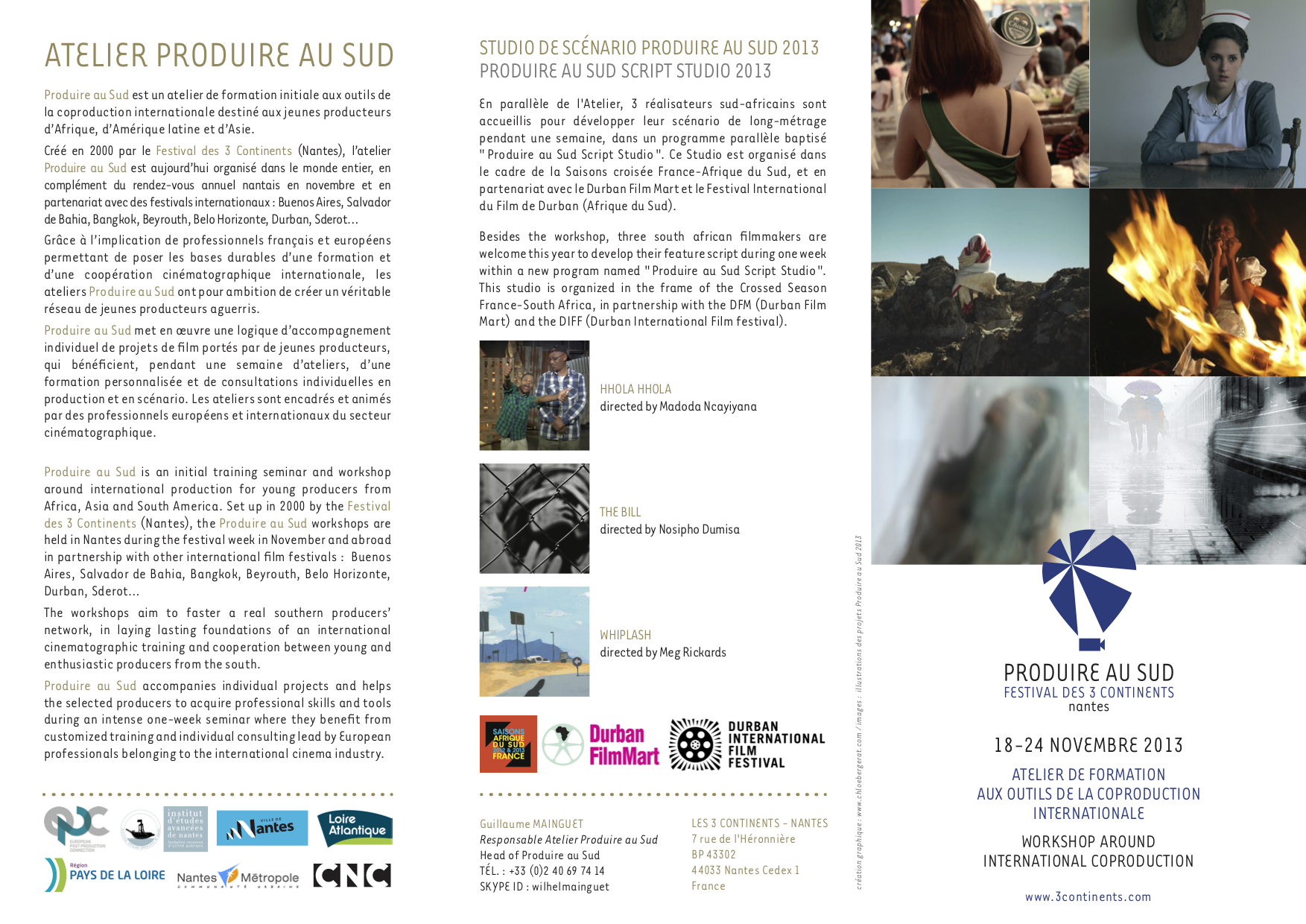
INSTITUTE FOR ADVANCED STUDY (IAS)
Since 2013, the Produire au Sud workshop takes place in the IAS. The Institute for Advanced Study provides an inspirational setting for intellectual innovation. The Institute’s mission to bring together internationally renowned scholars, writers and innovators from many different countries, working in many different disciplines. The scholars, temporarily freed from their normal professional obligations, have the opportunity to pursue their studies in a spectacular building overlooking the Loire River. They have the opportunity to work on their projects either individually or collectively.
The main objective of the Nantes Institute for Advanced Study is to create a new type of relationship between Western scholars and those from the rest of the world. By encouraging the latter to put forward their viewpoints we hope to achieve a true diversity of approaches to current problems posed by globalization.
